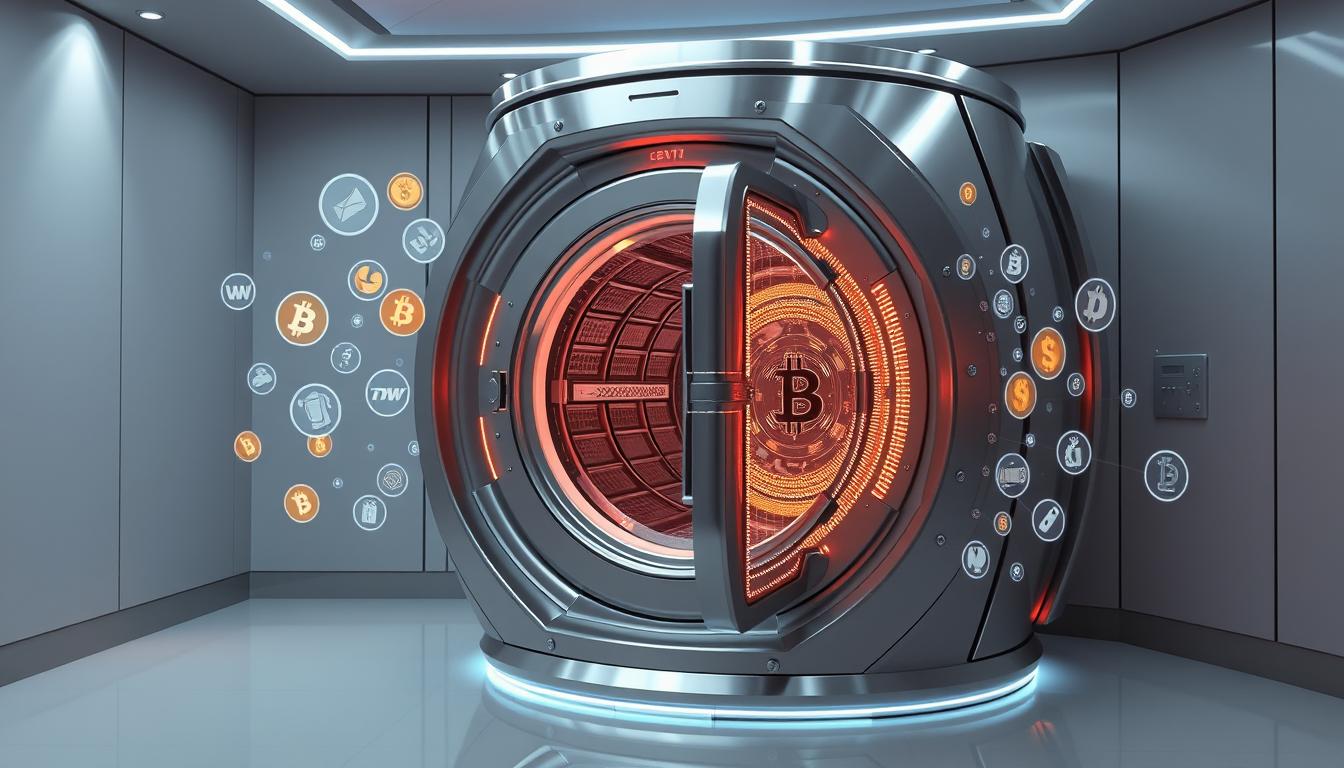Introduction
Crypto isn’t just a tech trend anymore — it’s serious money. As we dive deeper into 2025, securing your digital assets is no longer optional; it’s a must. Imagine losing your life savings because of a simple mistake — painful, right? Let’s make sure that never happens to you.
Understanding Crypto Wallets
What is a Crypto Wallet?
A crypto wallet is like a digital vault. It doesn’t actually hold your crypto coins; it stores the private keys that give you access to them. Without your private keys, you might as well kiss your Bitcoin goodbye!
Types of Crypto Wallets
Crypto wallets come in two big flavors:
Hot Wallets
These are connected to the internet — easy to use, but a bit risky.
Cold Wallets
Offline storage. Less convenient, but way more secure.
Hot Wallets Explained
Benefits of Hot Wallets
-
Super convenient for everyday transactions
-
Great for beginners
-
Often free to use
Risks of Hot Wallets
-
Vulnerable to hacking
-
Malware and phishing attacks are real threats
-
If the service provider gets hacked, you could lose everything
Best Hot Wallet Options for 2025
-
MetaMask (still ruling DeFi)
-
Trust Wallet (improved security updates)
-
Phantom (for Solana fans)
Cold Wallets Explained
Benefits of Cold Wallets
-
Almost immune to online hacking
-
Ideal for long-term storage
-
Total control over your assets
Risks of Cold Wallets
-
Easier to lose or damage physically
-
No recovery if you lose your private keys (unless you backed up!)
Best Cold Wallet Options for 2025
-
Ledger Nano X Plus
-
Trezor Model T Next Gen
-
Keystone Pro
Custodial vs. Non-Custodial Wallets
What is Custodial Storage?
When a third party (like an exchange) holds your private keys, that’s custodial. You trust someone else with your crypto.
Why Non-Custodial is Preferred by Many
Simple: “Not your keys, not your coins.” If you control your keys, you control your crypto — end of story.
Hardware Wallets: The Gold Standard
Top Hardware Wallets to Watch in 2025
-
Ledger Stax (touchscreen, Bluetooth, and secure chip)
-
Trezor Safe 3 (newly designed for maximum safety)
-
Ellipal Titan 2.0 (air-gapped security)
Setting Up a Hardware Wallet Securely
-
Always buy from the official site
-
Initialize and generate the seed phrase offline
-
Never share your recovery phrase (like, ever!)
Software Wallets: Still an Option?
Best Software Wallets for 2025
-
Exodus (beautiful UI and staking features)
-
Atomic Wallet (supports tons of cryptos)
-
Coinomi (good for privacy)
Safety Tips When Using Software Wallets
-
Always enable Two-Factor Authentication
-
Update your app and OS regularly
-
Use strong, unique passwords
Multi-Signature Wallets: An Extra Layer of Protection
How Multi-Sig Works
Think of it like a safe that needs two or more keys to open. You can set a wallet to require multiple approvals before any transaction happens.
Should You Use Multi-Signature Wallets?
If you’re managing large sums or running a business, absolutely! It’s extra work, but a game-changer for security.
Essential Security Practices for Crypto Storage
Using Strong Passwords and 2FA
A password like “123456” won’t cut it. Use complex passwords and set up Two-Factor Authentication wherever you can.
Regular Backup Strategies
Write your recovery phrases on paper and store them safely. Better yet, create multiple backups.
Recognizing Phishing and Scams
If it smells fishy, it probably is. Always double-check URLs, emails, and app permissions.
Future Trends in Crypto Storage (2025 and Beyond)
Decentralized Storage Innovations
New players are moving towards decentralized wallets where even YOU don’t fully control everything alone — a balance between safety and usability.
AI Integration in Wallet Security
AI is starting to monitor suspicious activity and automatically block hacks. Imagine a bodyguard for your crypto that never sleeps!
Common Mistakes to Avoid When Storing Crypto
-
Leaving coins on exchanges
-
Using public Wi-Fi for transactions
-
Not backing up your recovery phrase
-
Sharing your private keys
-
Ignoring wallet updates
Conclusion
Crypto is empowering, but it also demands responsibility. By understanding the tools available in 2025 and following smart security habits, you can sleep peacefully knowing your assets are safe. Don’t just “hodl” your coins — protect them like a dragon guards its treasure!
FAQs
What’s the safest way to store crypto?
Using a hardware wallet with offline backups is currently the safest method.
Are hardware wallets immune to hacking?
Nothing is 100% immune, but hardware wallets drastically reduce online hacking risks.
How often should I update my wallet software?
As soon as updates are available — they often patch serious security holes.
What happens if I lose my hardware wallet?
If you have your recovery phrase, you can restore your assets on a new device.
Can I store NFTs in the same wallet as crypto?
Yes! Many modern wallets allow you to store NFTs and cryptocurrencies together.
Read More Article About Crypto
